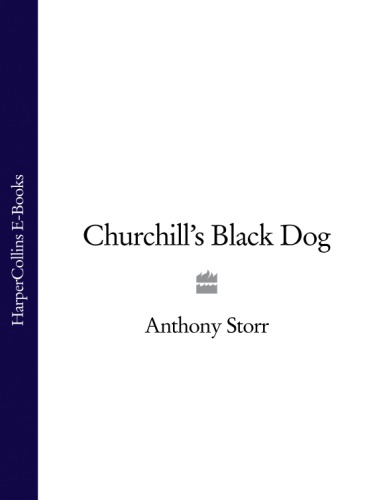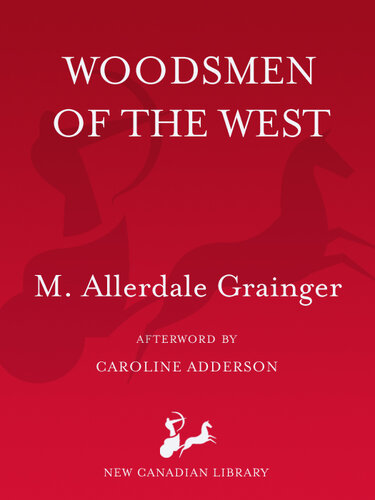oleebook.com
West de Paisley Rekdal
de Paisley Rekdal - Género: English
Sinopsis
Punctuated by historical images and told through multiple voices, languages, literary forms and documents, West: A Translation explores what unites and divides America, drawing a powerful, necessary connection between the completion of the transcontinental railroad and the Chinese Exclusion Act (1882-1943).
In 2018, Utah Poet Laureate Paisley Rekdal was commissioned to write a poem commemorating the 150th anniversary of the transcontinental railroad. The result is West: A Translationan unflinching hybrid collection of poems and essays that draws a powerful, necessary connection between the railroad's completion and the Chinese Exclusion Act (1882-1943). Carved into the walls of the Angel Island Immigration Station, where Chinese migrants to the United States were detained during the Chinese Exclusion Act, is a poem elegizing a detainee who committed suicide. As West translates this anonymous Chinese elegy character by...
Descargar
Descargar West ePub GratisLibros Recomendados - Relacionados
Reseñas Varias sobre este libro
Written to commemorate the 150th anniversary of the Transcontinental Railroad, Utah Poet Laureate Paisley Rekdals West: A Translation is certainly one of the most interesting poetry books I have read this year. Whether it is successful or not is more a matter of taste than effort, and while it isnt the kind of poetry I would normally enjoy, I found the meticulous scholarship included to expand my experience of the book immensely.
One of my favorite essays of this year was a piece published in Artforum critiquing the rise of research-based art in contemporary art museums. With the rise of professionalization and graduate programs, fledgling artists who attend MFAs and PhDs in studio art now immerse themselves in collecting, indexing, and historizing artifacts to produce various ends. I go to museums often and have often disd these pieces - more drawn to craft, I balk at reading numerous placards trying to weave links between collected objects as much as I detest sitting down to watch video art on a cathode tv. I dont make the time for it, and have rarely felt rewarded by this kind of art in a museum setting. The author of this essay goes on to describe numerous weakness in these kinds of work ranging from the privilege of attending these programs to the disorderliness of their contents. As a viewer, I frankly just find them boring.
I will make an exception to this same idea playing out in a book format. I dont have to stand in a museum or pay for a ticket, and have all the time in the world to move through it. Its what made Jenny Odells book on the attention economy successful for me, although Im unsure I would appreciate her art in person.
I bring this all up to say why Rekdals book, which I normally wouldnt , was so successful for me. I do not know a lot about her process when she created these poems, and I suspect that many of these were found works reappropriated and rearranged at the authors will. That I couldnt tell which was which was slightly frustrating to me. Some of the poems are simply lists of names: towns that the UP railroad passed through or tribes displaced by the emergence of the railroad. As a historical document, I suppose these names could be interesting, but ultimately they are just points of data that may or may not enhance the experience of reading her poems. But when the poetry hits (or slaps, as she mentions in the back half), they really work well. I come to poetry for craft, and you can tell that, for whatever was or was not cribbed language, a great deal of skill went into creating this.
Each of the poems in this collection are based on Chinese characters written on the wall of a detention cell in Angel Island Immigration Station. The word is expanded to house the narratives of a cast of characters across racial, ethnic, gender, class, and time itself, to tell the story of the world around the railroad. It is ambitious, but the essays in the back elucidating all of these historical items is what tied the book together for me. She doesnt just lay out what she found but analyzes, interrogates, and questions what she has created.
It so happens that earlier this year, I visited the location where the transcontinental railroad connected in Utah. I was only passing through to see the Spiral Jetty, a place I had often dreamed of visiting, and regrettably paid little attention to the historic significance of this site. Unfortunately I wont be headed back to Utah any time soon to explore that, but I am grateful that Rekdal has created a work of art around the region she inhabits, even if it is, as she claims, to be a scribe of empire. Its good work!2 s Maya ??46 2
wow. holy shit1 Mark FolseAuthor 4 books16
This amazing book is a brilliant combination of scholarship and poetry. Taking as inspiration the words of a poem carved into the walls of an immigration station on the West Coast in the 19th century, it explores the role of the dispossessed who built the transcontinental railroad. Rekdal accompanies the poems with Notes at the end of the book that explore her personal experience and her deep research to try and uncover the experience of the Chinese in particular, which laborers themselves left no written record.
She expands that into a magnificent picture of all who built and worked upon the railroad: Chinese and Irish on the transcontinental, but also brilliantly working in the Great Migration and the Black Pullman porters. It captures the power imbalance between the despised immigrants and slaves who built so much of the U.S. in phrases and images of brilliant selection.
While there is much focus on the Chinese and then the Irish in the building of the transcontinental railroad, as a southerner the phrase from the Note on the poem "Bitterness" struck hard: "slavery is the sleeper over which the nation runs. " The poem "You" is a deep and detailed look at the Black Pullman Porters of the railroads.
She touches not only upon the immigrant builders of the modernizing nation, but also upon the landscape through which they blasted, dug, quarried and laid the road. "Lament" captures the tragedy of giant redwoods taken down for railroad ties, or sleepers.
In addition to the notes, the books contains photographs of the railroad, its builders, and the landscape that perfectly complement it.
This is a book of great beauty and depth which every American should read, and which will probably be banned from Florida schools.poetry poetry-pile Patricia N. McLaughlinAuthor 2 books25
What an indictment of the robber barons who built the Transcontinental Railroad across the United States in the late 19th Century. Those whose lives were sacrificed to lay those tracks are remembered here, and the criminality of the murderous capitalists is described in great detail a warrant. The accompanying essays read affidavits. The fascinating illustrations and photographs invoke the dead witnesses to hold the living accountable.
At the 2018 conference for the Chinese Railroad Workers Descendants Association, I take audio recordings of conferees saying one of three sentences: This is the sound of a train; We do not ride in the railroad, it rides upon us; and We cannot count all the dead. This in Notes Toward an Untranslated Country: An Essay, p. 146
The train both unites and divides: it is the deepest, purest, most powerful fantasy of America. The work of the railroad is the work of empire, and for America to rise again and again, it must reinvest in its fantasy of itself as renewable, progressive, flexible. We are all servants of empire one way or another; I do not exclude myself in this. The extravagance of this poem I have produced reveals that I, too, am empires scribe. That in my attempt to critique the achievement I have also celebrated it; that it would be dishonest not to celebrate what inspired, at its root, a kind of wonder. For if I do not choose, also, to commemorate, do I further erase the workers? I refuse to abandon all fantasies of my nation. The railroad is built of words as much as steel. Homeward Facing in Notes Toward an Untranslated Country: An Essay, p. 158
Favorite Poems:
Learn
Sad
Lament
Body
Thousand
Miss Home
Vainly
Homeward Facing
Soil
Know
Your
Heart
Deadpoetry Eric98
At the risk of writing a very pretentious review, I can't help but compare this book to Julian Saporiti's No-No Boy project. Saporiti spins stories of the Asian experience in American history into catchy folk songs, while Rekdal turns similar stories into poetry. The poems can certainly be read and appreciated on their own, but the accompanying (very short) essays for each one added scholarly context while in no way detracting from their beauty. Though it's an uncomfortable beauty. The building of the transcontinental railroad was not a happy time, despite what my high school history books may have said back in the 90s. Rekdal's poems do not make this ugly period in American history more palatable, but they do add a layer of emotional depth that a straightforward history essay could not accomplish.non-fiction poetry Chris L.105 5
Paisley Rekdal has created a wonderful book of poems and material about the creation of the railroad and the racism aimed at the Chinese immigrants (as well as the Irish). Rekdal does an excellent job of allowing a wide range of voices and perspectives in the poem so that this feels a historical document and book fo poetry. The problem with the book (and why I give it three stars) is that it ends with 46 pages of VERY LONG notes for the poems. Not only is this a lot of notes, but the notes are huge blocks of texts printed in a particularly uninviting manner. I would have had these notes at the end of each poem. Separated from the poems, I was often have to return to the poems to remember what Rekdahl was referencing in her notes. nationalbookawardlonglist poetry womensliterature Ashley T455 3
4.75 Incredibly good collection, speaking to the various American people (Native American, Asian American, Black, etc.) who were involved with, exploited by, and harmed in the making of the American railroad. The railroad as a symbol was complex and interesting. Really a great collection.
A snippet from Miss Home:
What is freedom
but the power to choose
where you wont die? What is a train
but the self once yoked to terror loosed
inside a force that glides
on heat and steam? Youre so far
from Mississippi, the UP boss said
when we hit Rock Springs. Dont you miss
your home?
Miss home? I told him.
Im hoping to miss it entirely. Carolyn1,772 77
Read this if youre interested in actual American history. Read this as a companion piece to Howard Zinn or Ronald Takaki. Read the essays (in the back) plus their accompany poems (in the front) and then go to the books web site (!!) for accompany videos. This project is a tour de force and I definitely feel I got to experience so many different perspectives through it!
Another book from my The Rumpus poetry subscription, one of the best things Ive ever done for myself, right up there with prescription sunglasses and a cleaning lady. aapi black-lives-matter bookclub-rumpus-poetry ...more Stephanie Dargusch Borders644 23
A book to be reckoned with. This is a collection of poems and essays commissioned to commemorate the 150th anniversary of the transcontinental railroad and Rekdal did a beautiful job reconstructing all facets of history to bring us this all encompassing work.
I read it cover to cover, not realizing that the poems each corresponded with an essay. My method still worked fine but I probably would have read each poem and essay together. Then again, that would have involved an excessive amount of flipping back and forth. Heather O'Neill1,264 10
This book is a poetry book about the building of the railroad in the US told from the perspective of the Chinese men that were building it. I thought that the poems were really good and got their point across. After the poems there was a paragraph to a page long that explained each poem. I didn't realize this until I read all of the poems. I wish that I had knew it beforehand, so that I could've read the poem and then read about it. I think that I would've gotten. more from it.
I give it 4.5 stars Michael Mcdonough5
This is a remarkable book. The poems come out of deep research into the history of the transcontinental railroad and the history of the west, and bring to life characters and events from the past. But the book really takes off when you get to the notes. You end up reading the whole thing twice. The end-notes for each poem should be read in order - later notes refer back to earlier notes, and together they form a beautiful essay. This book reverses the expectation that the lyric poems will be personal, and the end-notes will be academic. Here, the end-notes are the most personal part. Antonio Delgado1,547 49
Can one translates the past? Even when knowing the language many gaps will remain. Redkals poems tackle that very issue while communicating a disturbing, and not so distant past when immigrants were threatened poorly and used for our modern form of slavery that has become working exploitation. These poems work as an archival text, but also as voices that can still be heard today among us in a country that still is, generally speaking, xenophobic and racist. Michael1,153 12
What a spectacular collection! I loved this collection as the author reflects on her Chinese heritage (particularly in this country - working on the railroad). The notes in the back on each poem and what is behind it - are wonderful and help make things clear that I hadnt quite seen. A wonderful, wonderful, wise, collection. Will Washburn15
Literally in love with this book. It covers the development of the American frontier from the (mostly) imagined perspectives of different people who were exploited or otherwise involved. 10/10 could not recommend more. leila feldman62
the first 50 pages were REALLY good. but then they got repetitive. also, the poems didnt allow room for interpretation because the notes told you what was being said. pinarnar21 2
Autor del comentario:
=================================












